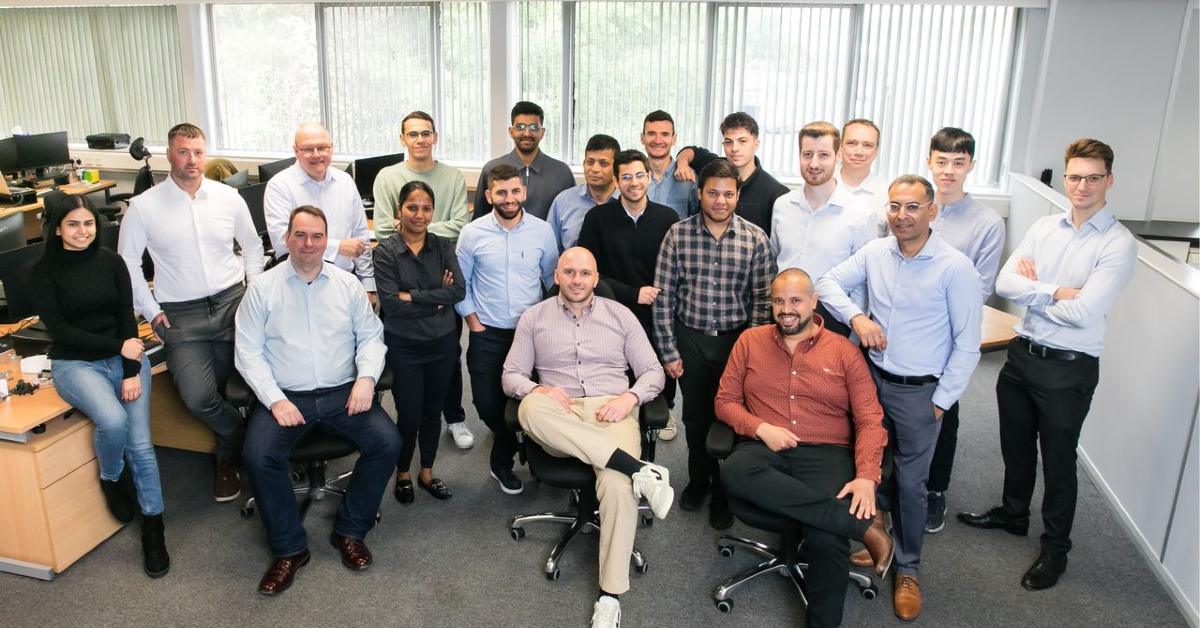Last mile connectivity in a city is definitely not an easy space to break into. With numerous startups, scaleups and well-established companies vying for a chunk of the same market, any new entrant will be left grasping at straws. However, one startup has made a name for itself soon after launching its services in the European market. The Berlin-based micro-mobility startup Flash has announced that it achieved one million e-scooter journeys in a span of merely four and a half months.
Additionally, the startup is rebranding itself and will now be called Circ as it gears up to expand into new territories. The company will launch its services in Germany this week, which means it will be the first legal service on public roads in the country. Circ is also the first micro-mobility company to be a part of the Union Internationale des Transports Publics (UITP), which is the worldwide association for public transportation. We got to know more about the rapidly growing startup from its co-founder, Carlos Bhola.
What is your idea of micro-mobility?
Every mobility and micro-mobility startup has its own purview on how things should be. Circ believes that using cars to travel a few kilometres in a city is not efficient since drivers waste hours stuck in traffic each year. Instead of taking a one-and-a-half ton, fossil fuel burning hunk of metal, why not use using personal light electric vehicles for micro-mobility, which has the potential to lower carbon emissions and save time?
How Circ differentiates itself from other e-scooter companies?
As mentioned above, Circ is the new name of the startup as it wanted to establish an identity that represents the company and its vision of safer, cleaner, better-connected journeys. The company’s new logo identity is said to be chosen to evoke the circles of our wheels on each of its custom-made e-scooters and the circuitry in the smartphone that connects people.
Bhola says, “It [the new identity] also better reflects our responsible ethos to building connections between communities and people. We are already working with various strategic partners to bring this vision to fruition. Our approach means that we always talk with city officials before we launch, we insure every ride even if the law says it’s unnecessary, we hire full-time workers to care for our vehicles and keep them charged, and we slow our riders to keep them within the speed limits.”
The company says it is safety-obsessed and always puts safety first before anything else. Its proprietary e-scooters are designed for sharing, constant use and apparently built to last. With micro-mobility in mind, Circ is also developing new vehicles that will enable and be a part of a sustainable and multimodal integrated urban transport network.
Where are Circ’s e-scooters being manufactured and are there different variants?
Circ manages its own global supply chain. Its custom-made vehicles are manufactured in China and then assembled and maintained locally. As for different variants, the startup has only one offering for now, which is tailored as per the requirement of a city the service is launching in.
Circ’s first-generation e-scooter is widely available and is said to be a more robust vehicle aimed at constant, outdoors use. It is equipped with a heavier rust-resistant alloy frame and sports larger wheels, along with suspension and independent braking systems. While there are new versions of the e-scooter in development, Circ has a range of vehicles that it will soon introduce in the market.
How do you plan to deal with the fierce competition?
Micro-mobility is a very competitive segment with many players already established in the space. However, Circ doesn’t seem too worried about the competition as it believes that competition is good as it helps raise standards, everyone who is competing respects the city. Additionally, people flocking to alternative forms of transport will only serve to help micro-mobility companies grow.
“We are quietly proud of the quality of our vehicles and our service. Our users have helped us to achieve one million journeys in just four and a bit months, passing this milestone faster than any mobility company to date. We stand for micro-mobility done right and people are recognising that,” Bhola says.
Any collaborations planned?
As mentioned earlier, Circ a micro-mobility member of the Union Internationale des Transports Publics (UITP), which is the worldwide association for public transportation. In fact, it claims to be the only micro-mobility member of UITP and says that the partnership helps the company better understand and align with the mobility goals and needs of public transport operators.
The startup has also struck a long-term collaboration with Swiss Federal Railways, which is touted to be the world’s first comprehensive partnership between a public transport operator and a micro-mobility company. This partnership will explore digital integration as Circ aims at creating mobility options for rail and e-scooter users. Additionally, the company puts safety first and this is also working with vehicle safety assessment and monitoring experts to develop guidance for users.
What are your expansion plans for Europe?
Circ will be the first company to launch a road-legal e-scooter service in Germany. The startup is already present in Austria, Switzerland, Portugal, Belgium, Spain, France and Norway. Alongside additional cities in the aforementioned countries, the company is planning to expand its services to other countries as well.
What are the challenges faced while dealing with the local government?
Circ believes that it shares the concerns of city authorities and local communities. Safety is of tantamount importance to the startup and that’s why it designs, manufactures and operates custom-made e-scooters that are rugged. The company encourages people to read the provide guides, use helmets and even insures every ride, even if it is not required by the law.
“Each city is different and we can support local needs, whether that is by limiting the speed of our vehicles or identifying preferred parking zones. Ultimately we only launch in cities where Circ is welcome because we want to work together with officials to scale our operations responsibly where they can have the greatest impact,” Bhola comments when asked about the safety concerns of consumer driving e-scooters.
Are you looking for more external funding?
Circ raised € €55 million in series A funding earlier this year. Soon after it surpassed one million rides. The startup says it is currently focussed on building upon its growth but is also interested in talking to potential investors who want to join and support the company.
Stay tuned to Silicon Canals for more updates in the tech startup world.
https://siliconcanals.com/news/startups/apply-for-social-impact-lab-2019-with-your-startup-or-scaleup-and-complete-your-social-mission/










01
From telecom veteran to Dutch Startup Visa success: The Jignesh Dave story